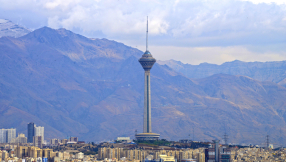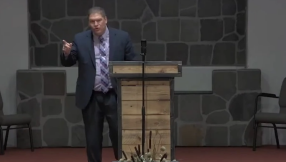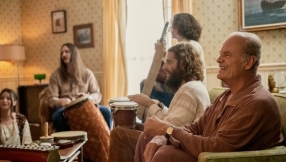
In a recent statement issued by Lambeth Palace, the Archbishop of Canterbury has given his unequivocal support to the Advisory Opinion issued by the International Court of Justice (ICJ) calling for Israel's immediate and unconditional withdrawal from the 'occupied Palestinian territories' and reparation to be paid to the Palestinians for damage caused by the 'occupation.'
It is worth quoting his statement in full:
'The Advisory Opinion by the International Court of Justice (19 July 2024) makes definitively clear that Israel's presence in the Occupied Palestinian Territories is unlawful and needs to end as rapidly as possible.
At a time when the world is marked by increasing violations of international law – and commitment to a rules-based system is in question – it is imperative that governments around the world reaffirm their unwavering commitment to all decisions by the International Court of Justice, irrespective of the situation. International law protects our shared humanity, and safeguards human dignity and flourishing. To resist a world where actions such as torture, hostage-taking and indiscriminate violence become the norm, we must apply the law without fear or favour in all circumstances. But for too long it has been applied and upheld in a selective manner that threatens our common peace and security. Now is the time to reverse that deeply damaging trend.
'Having visited our Palestinian Christian brothers and sisters many times over recent decades, it is clear to me that the regime imposed by successive Israeli governments in the Occupied Palestinian Territories is one of systemic discrimination. Through annexing Palestinian land for illegal settlements, depriving Palestinians access to their own natural resources, and imposing a system of military rule that denies them safety and justice, the State of Israel has been denying the Palestinian people dignity, freedom and hope. I am particularly aware of how this is impacting Palestinian Christians, threatening their future and viability. It is clear that ending the occupation is a legal and moral necessity.
'I pray that all UN member states respond positively to this Advisory Opinion by ensuring their individual and common actions are consistent with it – and pave the way for the realisation of the Palestinian people's fundamental right to self-determination.'
From a Christian perspective it is unquestionable that the rule of law needs to be upheld (Romans 13:1-7) and that where one group of people is treating another people unjustly then this needs to stop - 'Let justice roll down like waters, and righteousness like an ever-flowing stream' (Amos 5:24). On these two basic points we can agree with the archbishop. Nevertheless, his statement as a whole is deeply problematic for four reasons.
First, we cannot simply say (as the archbishop's language about 'unwavering commitment to all decisions' implies) that whatever a court has said must be regarded as unquestionably correct. After all, Jesus was crucified on the basis of judgments made against him by both Jewish and Roman legal authorities, but, as I am sure the archbishop would agree, that does not mean that these judgments were right.
Secondly, the ICJ was not unanimous in its opinion. Its own Vice President, the Ugandan Christian Julia Sebutinde, submitted an excoriating dissenting thirty-six page judgment in which she argues that the majority opinion from the ICJ lacked the necessary information and jurisdiction to give an opinion on the matter, misapplied the relevant law, 'circumvents and potentially jeopardizes' the legally binding agreement between Israel and the Palestinian Authority entered into by both sides in the Oslo Accords of 1993 and 1995, and if applied would have dire practical consequences.
The archbishop completely fails to even acknowledge, let alone engage with, the arguments put forward by Sebutinde, and echoed by other commentators on the ICJ's judgement.
Thirdly, the archbishop simply assumes, rather than argues, that the lands in dispute between Israel and the Palestinians are occupied territories and therefore all Jewish settlement in them is illegal. However, the mandate for Palestine given to Britain by the League of Nations to create a homeland for the Jewish people and the accepted legal principle 'uti possidetis iuris' ('as you possess under law') which holds that newly formed sovereign states should retain the same borders that the preceding political entity possessed prior to their independence, mean that the Jewish state formed in 1948 has legal title to all the territory of the former mandate (including what are now called the West Bank and East Jerusalem, which were illegally annexed by Jordan from 1950-1967). It follows that there is no Israeli occupation, and that Jewish settlement is not illegal.
It should also be noted that under the Oslo Accords the vast majority of Palestinians in the West Bank and East Jerusalem live in areas governed by the Palestinian Authority and that under these accords the permanent status of these areas and the territory currently governed by Israel is to be decided by direct, bilateral 'final status' negotiations between Israel and the Palestinians, and appeal to external parties (such as the ICJ) is specifically forbidden.
Fourthly, the archbishop ignores the practical results which would flow from the implementation of the ICJ judgment.
It would mean the forced eviction of upwards of 700,000 Jewish people and would cause administrative and economic chaos, particularly in Jerusalem where it would divide the city in two. If it happened immediately, as the ICJ suggests, it is virtually certain, given the present circumstances, that there would be armed conflict between the various Palestinian factions for control of the West Bank and East Jerusalem. Whoever was victorious, the result would be an impoverished authoritarian kleptocracy allied to Iran that abused human rights, oppressed women and minority groups and depended for its legitimacy on its willingness to continue to wage an Islamic holy war to destroy the rest of Israel by either killing, expelling, or subjugating its Jewish inhabitants.
In addition, as military experts have acknowledged, the ability of Israel to defend itself in such a war would be severely compromised by a complete withdrawal from the West Bank and East Jerusalem and this would be contrary to the principle set out in UN Security Council resolution 242, and affirmed by the Lambeth Conference of Anglican Bishops in 1988, that Israel should be able to live 'in peace within secure and recognized boundaries free from threats or acts of force.' To put the matter most starkly, while the archbishop has repeatedly deplored the Jewish Holocaust in Europe during the twentieth century, what he is calling for runs the danger of setting up the conditions for another such Holocaust to take place in this century.
So, is there a better way forward? Arguably there is.
- The defeat of the current attack on Israel by Iran and its proxies, with the release of the remaining living hostages from 7 October and the return of the bodies of the dead.
- Work by the Israeli political and judicial authorities and Israeli human rights groups to prevent and punish abuses of Palestinian human rights and the creation of new settlements illegal under Jewish law.
- Work by Palestinian civil society groups to lay the groundwork for an eventual Palestinian state alongside Israel that is economically prosperous, democratically governed by a reformed Palestinian Authority, respects the rule of law and human rights, and ceases to seek Israel's destruction. In particular, Palestinian young people must no longer be taught that Jews are the evil enemy who have to be fought.
- Eventual final status negotiations under the terms of the Oslo Accords that bring about an agreed final settlement of who gets what territory and under what conditions.
It is these kinds of developments for which the archbishop should be calling.
A final point which needs to be noted is that something which the archbishop can address directly as the senior bishop of the Anglican Communion, and which he needs to address, is the rejection of Jewish Christians by Palestinian Anglicans. This is an issue that has been highlighted very powerfully by the Church of England writer Giles Fraser in his recent essay 'The Problem with Palestinian Church'.
Fraser is a Church of England minister married to an Israeli Jewish wife and in his essay, he explains why he goes to the Levanda Street Pentecostal Church when in Israel rather than to an Anglican Church. Fraser writes: 'There are bad eggs in every Church. But there is no doubt that there is a radical anti-Israeli side to Palestinian Christianity, to such an extent that parts of the Church have developed something of a distaste for the Jewish underpinnings of Christianity, including even the very presence of the Hebrew scriptures within the Christian Bible.'
He then goes on to recall his experience of an Anglican eucharist in a church in southern Tel Aviv that had been led by a young priest who 'was so obviously Jewish and Israeli, which is highly unusual':
'So over coffee after church I asked him the story of his conversion, and how he had come to be confirmed as an Anglican. 'Were you ordained in the Diocese of Jerusalem?' I asked him. 'Oh no', he replied. 'They wouldn't ordain me; I'm originally Jewish Israeli.' Now, I have not been able to confirm his story. But I believed him. And if it is true, the Diocese of Jerusalem would be the only Diocese in the world that would discriminate in ordaining people on the basis of their ethnicity. I remain shocked by his story.'
He continues, 'I have no great animus against the Palestinian Church. And were I to try to hold a congregation together in Gaza or the West Bank under present circumstances, I would inevitably want to be alongside my people in their suffering and feel great anger towards those who were harming them. But for so long as this anger is misdirected towards those Jews who want to live free from attack in Israel, I will keep going to the extraordinary Levanda Street. I pray for my Palestinian brothers and sisters in Christ, but I won't be joining them.'
As Fraser notes, this division between Palestinian and Jewish Christians, and the Palestinian rejection of the Jewish roots of Christianity that sometimes accompanies it (including the rejection of the Old Testament and even the claim that Jesus was not Jewish but Palestinian) is shocking. It goes directly against the teaching of Paul in Romans 9-11 and in his letters as a whole and as such is completely heretical. The Jewish people cannot, ever, be rejected by Christians because they are the olive tree into which all other Christians, Palestinians included, have been engrafted (Romans 11:13-24). Fraser's witness to this problem is not alone, others have noted the same phenomenon, and it is one that the archbishop has the authority and the obligation to address. He should do so.













